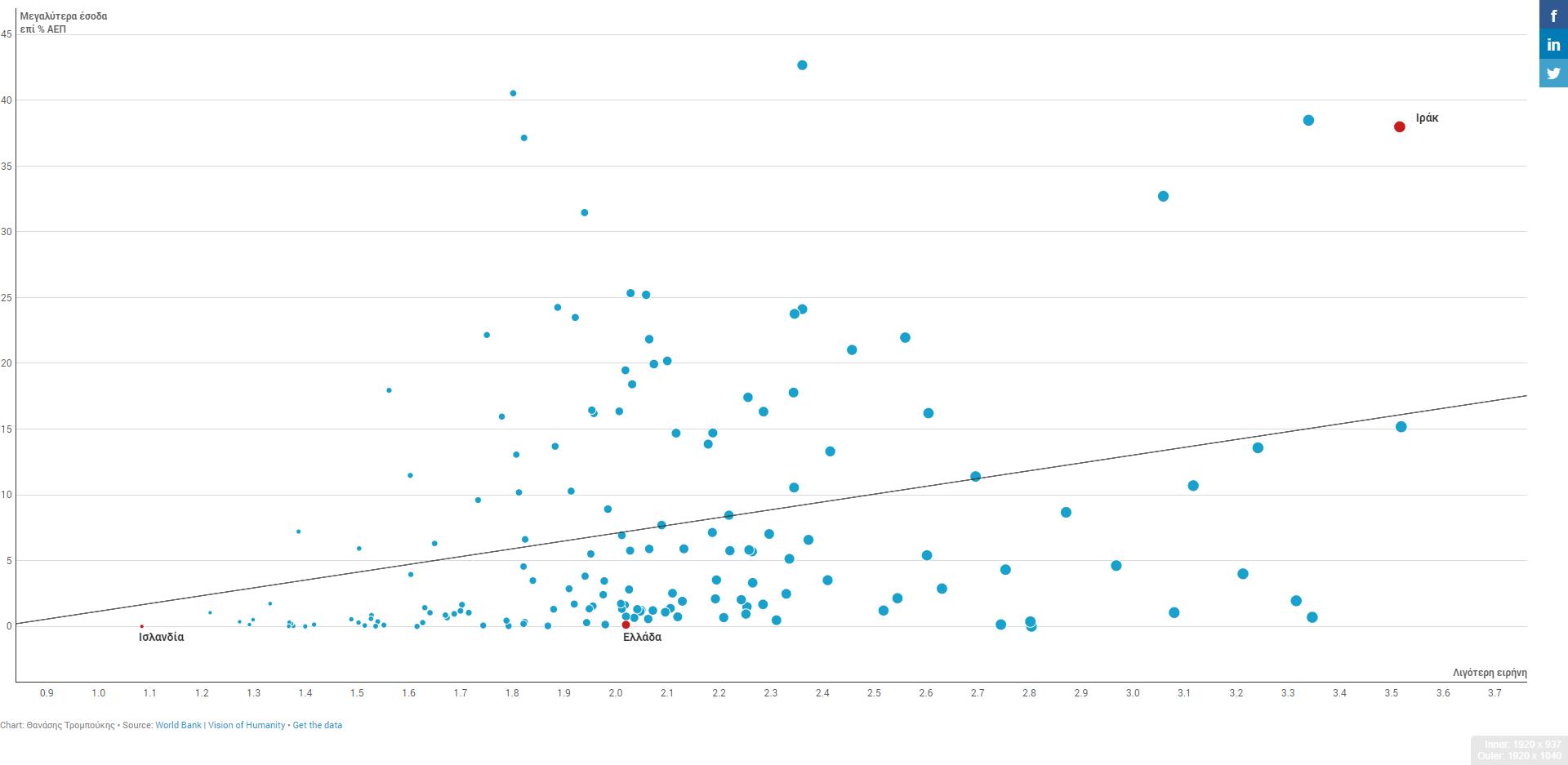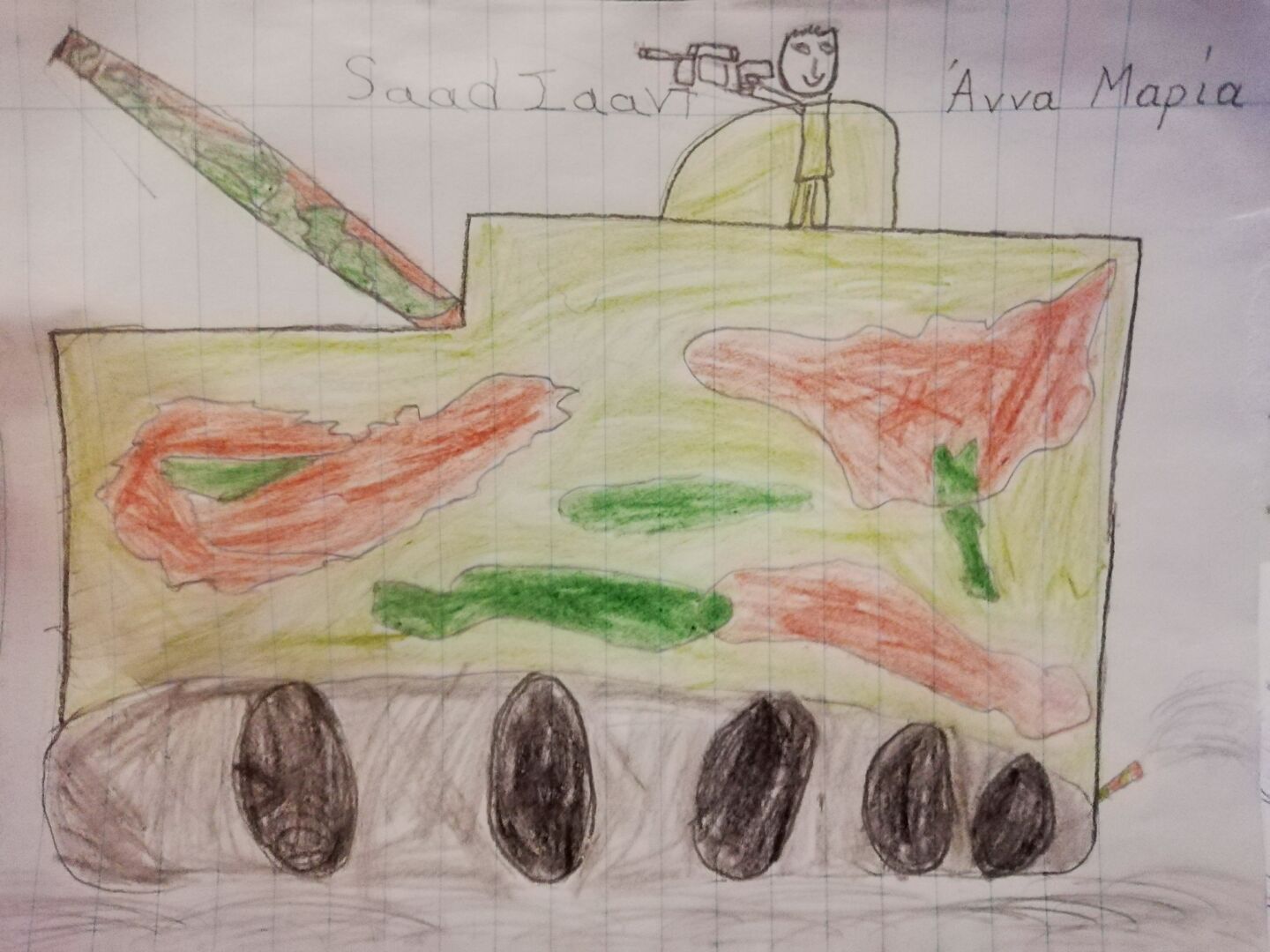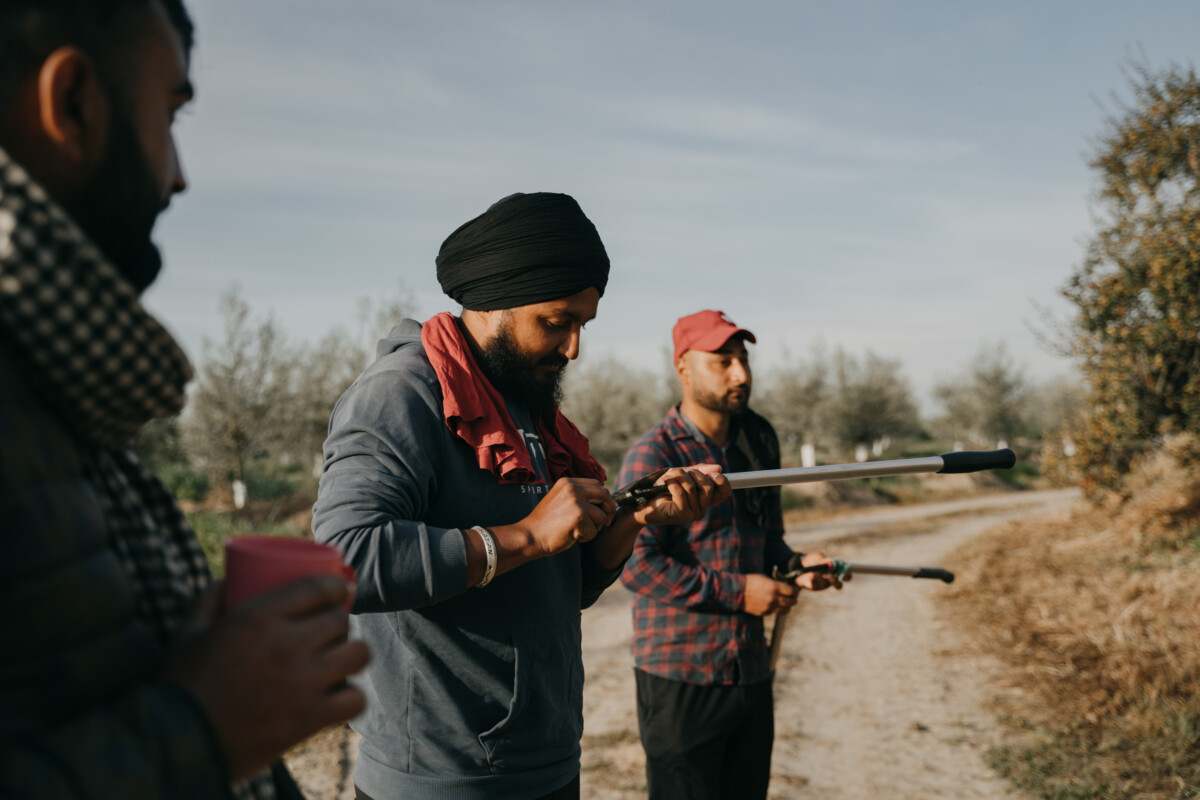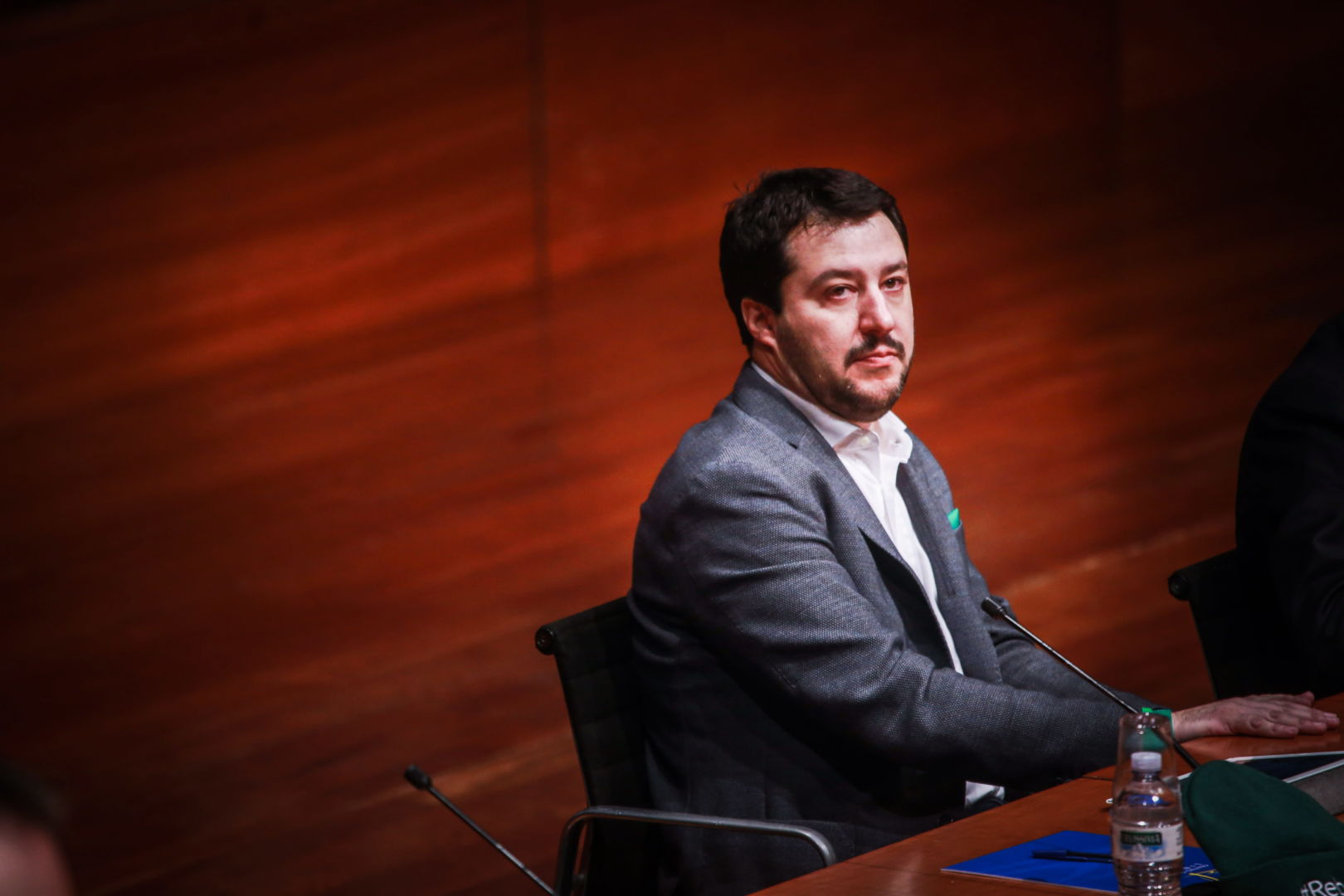The term resource curse refers to a situation in which countries with an abundance of natural resources, such as fossil fuels and certain minerals, appear to have lower economic growth, less democracy and lower index scores on peacefulness. For the graph presented here, we used two different databases, the World Bank and the Vision of Humanity, which churns out the Global Peace Index (GPI).
The World Bank figures show what the countries earn from the exploitation of their natural resources as a percentage of their Gross Domestic Product. The indicator we use includes revenue from the exploitation of oil, gas, coal, minerals and forests. Detailed information on the Global Peace Index can be found here.
The higher each cycle is on the graph, the more revenue the country has from natural resources and the more to the right of the horizontal axis, the less peaceful it is. The size of the circle reflects the country’s ranking in the list of the 162 countries for which we have available data for 2017. Due to missing data, countries such as Syria and Venezuela, are not included in the list. The data analysis was done by using Python and the Pandas library.




